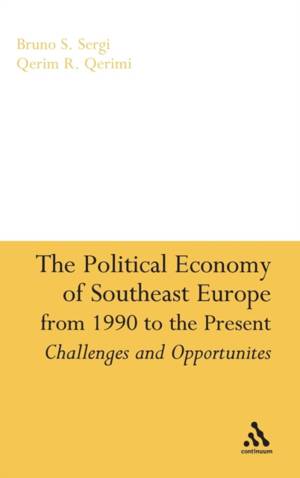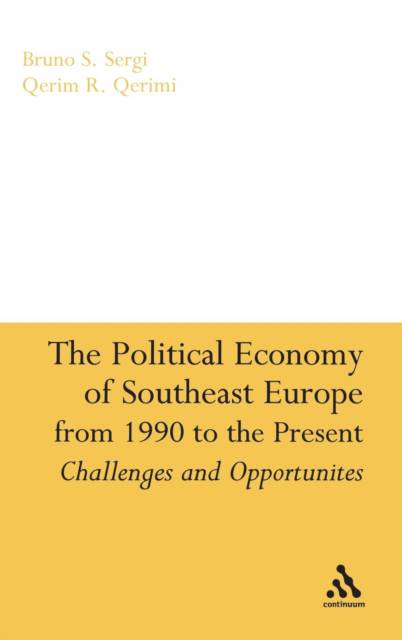
- Retrait gratuit dans votre magasin Club
- 7.000.000 titres dans notre catalogue
- Payer en toute sécurité
- Toujours un magasin près de chez vous
- Retrait gratuit dans votre magasin Club
- 7.000.000 titres dans notre catalogue
- Payer en toute sécurité
- Toujours un magasin près de chez vous
The Political Economy of Southeast Europe from 1990 to the Present
Bruno S Sergi, Qerim Qerimi
Livre relié | Anglais
322,45 €
+ 644 points
Description
Political instability and military clashes in the Balkans during the 1990s resulted in many countries joining the European Union, or obtaining the status of candidate countries. Many others are hoping to do so soon, while moving toward greater socioeconomic stability. The co-authors of this book, both experts in the politics and economics of the region, argue that the Balkan Peninsula is a critical region in the struggle for international stability today.
The Political Economy of Southeast Europe from 1990 to the Present takes the reader on a historical journey through the region. The authors examine the process of European Union enlargement, with a particular focus on the integration of the Balkans. They also look closely at economic growth in the region, and pursue ideas for more effective policies against corruption and organized crime. The Political Economy of Southeast Europe from 1990 to the Present clearly illustrates the causes that have conditioned policy response and prospective policy options. The book paints a definitive picture of a Peninsula that needs to move toward a clear and lasting membership of the European Union.Spécifications
Parties prenantes
- Auteur(s) :
- Editeur:
Contenu
- Nombre de pages :
- 208
- Langue:
- Anglais
Caractéristiques
- EAN:
- 9780826428677
- Date de parution :
- 15-04-08
- Format:
- Livre relié
- Format numérique:
- Ongenaaid / garenloos gebonden
- Dimensions :
- 162 mm x 229 mm
- Poids :
- 426 g







